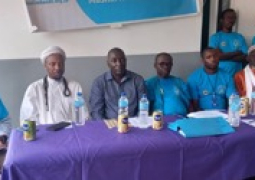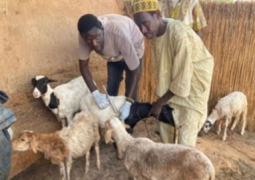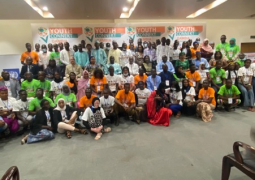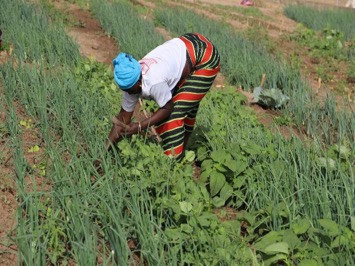
Going by these testimonies, there are positive trends and signs of the country addressing malnutrition though the Global Environment Facility-funded Adapting Agriculture to Climate Change Project (AACCP) intervention areas in the Gambia.
“Thanks to FAO Gambia, we have a road that makes it easy for the community ambulance to transport patients to the nearest referral health facility, they also supported us with milling machines, power tillers, and other farm implements.” Jalamang Touray, a local farmer in URR.
The village is also home to an AACCP-supported Poultry Farm which generates income and protein for the beneficiaries. The farm is integrated with a Vegetable Garden supplying it with compost manure to ensure the healthy growth of vegetables. 358 people most of whom are women currently benefit from the garden.
Each member contributes a sum of 500 dalasis to the village account yearly amounting to a working capital of 179,000 dalasis.
The amount raised and any profits derived are used for the development of the village including investing in the community garden.
Touray added; “the project gave us a solid chain-link fence, a borehole, a solar and reticulation systems. However, due to the size of the garden and the number of people working here, we also took it upon ourselves to erect additional reticulation systems, to provide easy access to water in other parts of the garden.”
The community efforts confirm the commitment to taking ownership of every support they receive; the evidence is over 20 million GMD generated in the 2022 harvest.
She recalled that last year, they generated about 12.5 million GMD from bitter tomato sales, 2.5 million GMD from onion sales, and 5.1 million from the sale of mint cumulatively from the garden.
Other beneficiaries at the garden acknowledged similar testimonies with regards to project, adding that they are pleased with the numerous benefits these projects brought to them, with a promise of growth.
Another beneficiary, Tamara Tambajang , said FAO changed the way they grow their crops, as the project taught them how to preserve compost manure and its use on their vegetables.
“This improved our yield and customer base because many people from other places prefer to buy from us, our produce is organic, and can be credited for the huge profit we all generate from the garden.”
Read Other Articles In National News
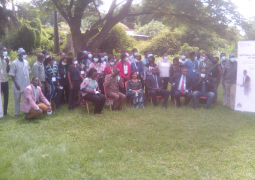
Minister Badjie highlights role of youth in electoral processes
Aug 25, 2021, 11:39 AM
